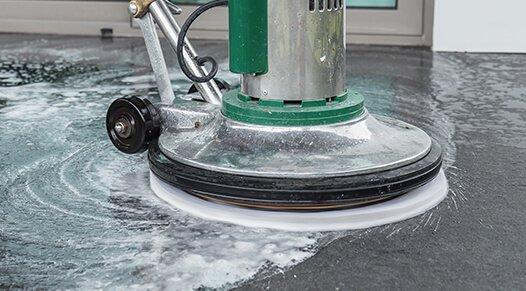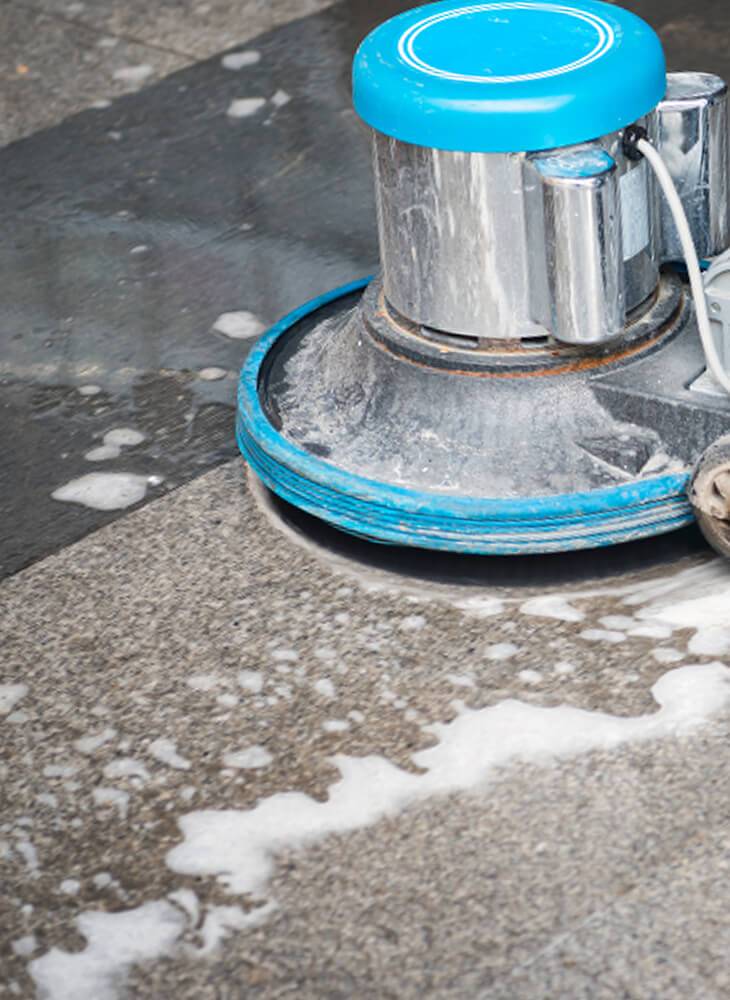Professional Floor Stripping and Sealing by Fantastic Services
Safeguard your vinyl or tile floor against stains and surface damage!
- Ensures low maintenance
- Extends the lifespan of your flooring
- Repels adequately stain formation
- Provides protection against scratches
How stripping and sealing works?

Why Stripping and Sealing Should Be Handled By a Pro?
The experts from Fantastic Services realise that tile and vinyl floors need regular maintenance in order to look their best and “serve” you for a long time. And wiping them daily with a mop is simply not sufficient. Over time hard floors made from natural stone and most man-made materials begin to look dull and their protection becomes compromised. Hence, they need to be resealed every few years in order to keep them stain and scratch-free. Even if your flooring is constructed from a type of fire-glazed tiles, which do not usually require an additional protection, you can still consider sealing the grout to repel dirt accumulation in between the tiles.
Common DIY floor care errors
The most widespread mistake people do when resealing their flooring is to skip the important step of stripping the old disintegrated protective layer, first. This results in the formation of a thick plasticky film, which not only cracks easily but also gives the flooring a milky, lacklustre appearance.
Another common shortcoming in the sealing process is applying the wrong sealant that is unsuitable for the particular type of floor surface. For example, porous natural stone surfaces are best sealed with an impregnator which is oil and water-resistant. This type of sealing product is long-lasting and does not change the natural colour of the stone. Vinyl floors, on the other hand, which endure high traffic, should be sealed with a topical solvent-based sealer.
To avoid the risk of misapplication, we strongly advise entrusting the protection of your flooring to a hard floor restoration expert.
What types of floors do we seal?
We specialise in stripping and resealing of floor surfaces made from marble, sandstone, terracotta, limestone, granite, concrete, as well as vinyl. We also have the experience in applying expert restoration treatment techniques for ceramic, quarry, travertine, terrazzo, slate, quartzite tiles and more.
The company boasts expertise in both sealing newly installed floors and floorings that require resealing after the old coating has been stripped off with a professional equipment.
What Our Stripping and Sealing Service Involves
The service is executed with a minimum hassle and in a straightforward manner:
- The technicians arrive with a high-end professional equipment and all the required products to complete the job.
- The old sealant is removed with a specialised machine after a stripping solution is first applied to the surface.
- A neutralizer is then applied to remove any chemical residues.
- The specialist will also wash the floor with water and leave it to dry for half an hour.
- Subsequently, based on the type of floor you have, a suitable sealing solution is applied in two or three coats. Drying time between coatings applies.
- Upon request, the floor is buffed with a polishing equipment.
This service can also be incorporated as a vacate cleaning option, or you can request it from your housekeeper, if you feel that your floors need some extra attention.
Note that fresh-installed natural stone, vinyl and tile floors should be sealed immediately after installation to ensure that they are protected against damage and contamination. You can count on the Fantastic floor technicians to advise you on the most suitable protective solution for your specific type of flooring. In addition, you can seek their advice on whether your flooring will benefit from our honing and polishing services prior to sealing.

